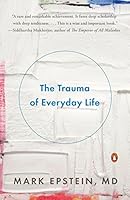Sublime
An inspiration engine for ideas
Poetic Outlaws • The Comfortable Life Is Killing You
with her clients, she says, “three lacks” are typical—lack of control, identity, and self-worth—along with a need to numb pain. “In a relational world . . . the human psyche devises a brilliant means to emotionally survive,”
Gabor Maté • The Myth of Normal: Trauma, Illness, and Healing in a Toxic Culture
It is known that the likelihood of long-term therapeutic gains increases with the likelihood of the subject having a mystical experience, prima facie evidence favoring a critical role for subjectivity. It is precisely the high emotional impact of the memories of the vivid and highly unusual psychedelic experience that serves as the primary source o
... See moreChristof Koch • Then I Am Myself the World: What Consciousness Is and How to Expand It
Les psychiatres suisses Medard Boss et Ludwig Binswanger mirent au point la « Daseinsanalyse » en s’inspirant des idées de Heidegger ; par la suite, les idées de Sartre eurent plus d’influence aux États-Unis et en Grande-Bretagne. Rollo May et Irvin Yalom travaillèrent dans un cadre ouvertement existentialiste tandis que des idées semblables guidèr
... See moreAude de Saint-Loup • Au café existentialiste : La liberté l être & le cocktail à l abricot (French Edition)
Psychedelics: Microdosing, Mind-Enhancing Methods, and More – The Tim Ferriss Show
tim.blogInsider No. 84: Psychedelic Wellness

Lost Connections: Uncovering the Real Causes of Depression – and the Unexpected Solutions
amazon.com
